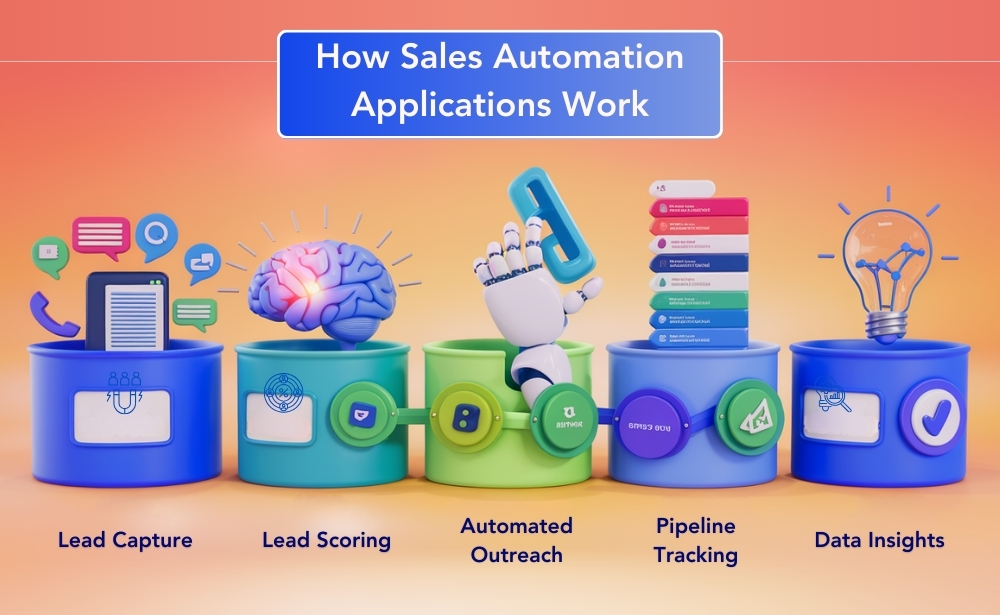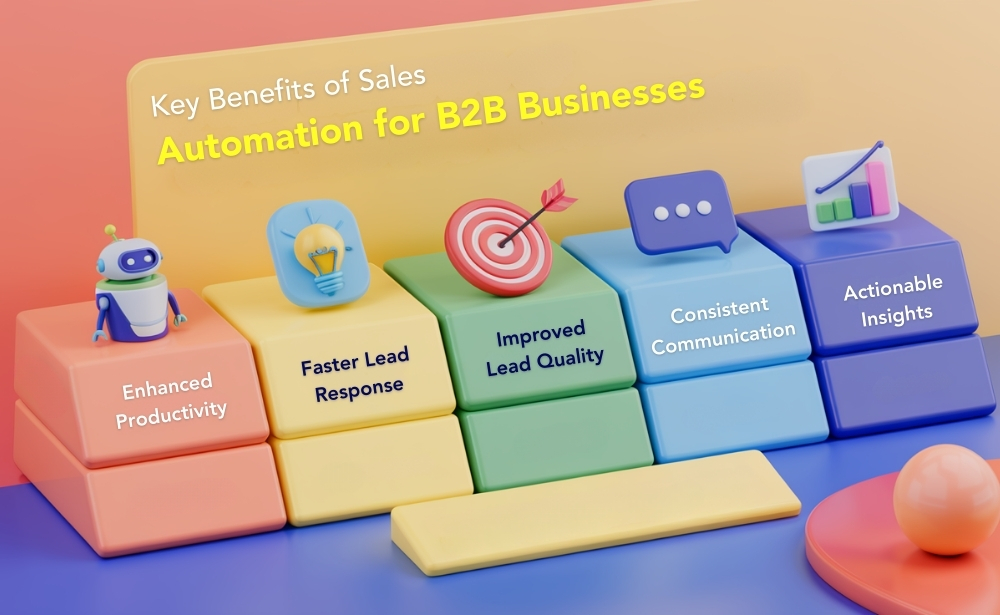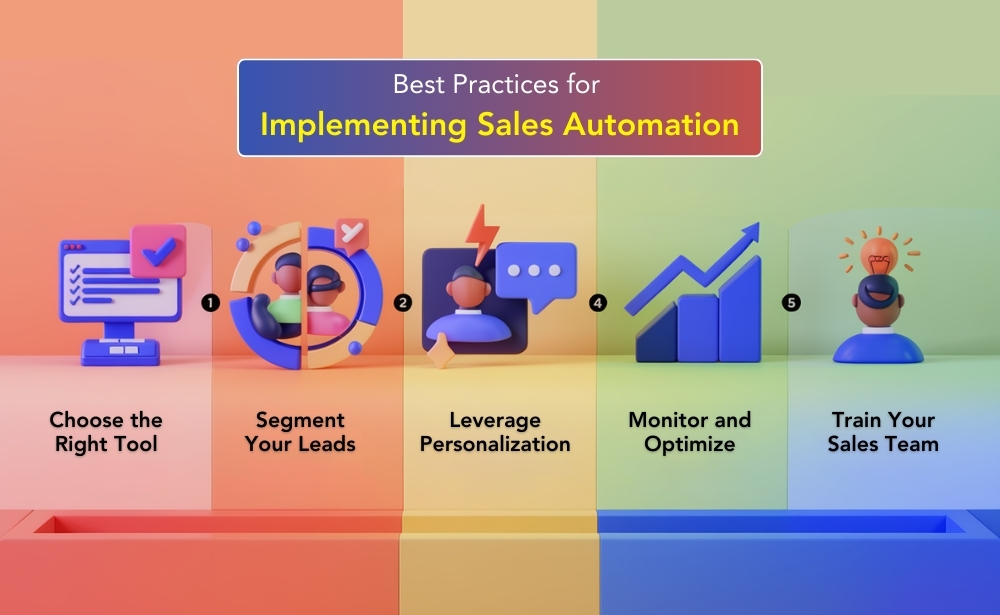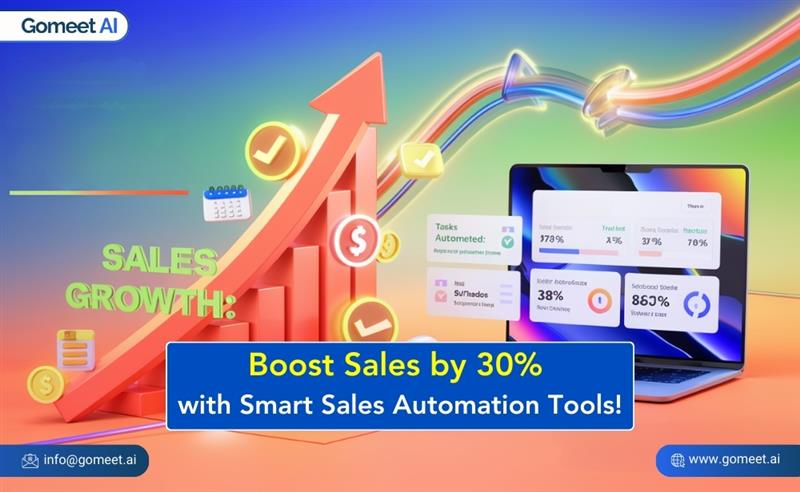Managing leads effectively is critical for sales success, yet many B2B companies still struggle with manual, inefficient processes that waste time and resources. Enter sales automation—the game-changing technology that transforms how businesses capture, nurture, and convert leads.
With tools like sales automation applications, companies can automate repetitive tasks, improve lead management, and streamline their sales workflows. In fact, businesses that adopt automation tools see a 20-30% boost in sales productivity and faster pipeline progression.
This blog explores how sales automation revolutionizes lead management, addresses key challenges, and helps B2B organizations scale efficiently.
The Challenges of Traditional Lead Management
Manual lead management is often riddled with inefficiencies, errors, and missed opportunities. Here are the key challenges businesses face:
- Time-Consuming Processes:
Sales teams waste hours on data entry, follow-ups, and lead segmentation, leaving less time for strategic tasks.
- Lead Leakage:
Without proper tracking, high-potential leads often fall through the cracks, hurting revenue growth.
- Inconsistent Follow-Ups:
Manual processes make timely, personalized follow-ups difficult, reducing conversion chances.
- Lack of Data Insights:
Traditional systems fail to provide actionable insights, making it harder to prioritize leads effectively.
Stat: Companies lose up to 25% of potential leads due to inefficient follow-ups and lead management processes.
What is Sales Automation and How Does It Work?
Sales automation refers to the use of technology to automate repetitive sales tasks, such as lead capture, follow-ups, email outreach, and pipeline management. It helps sales teams focus on high-value activities while ensuring consistent workflows.
How Sales Automation Applications Streamline Lead Management:
- Automated Lead Capture:
Tools automatically collect and organize leads from multiple channels, eliminating manual data entry.
- Lead Scoring and Prioritization:
Sales automation applications use AI to score leads based on behavior, demographics, and engagement, allowing teams to focus on the most promising opportunities.
- Email Automation and Follow-Ups:
Automates personalized follow-up emails to nurture leads through every stage of the sales funnel.
- Pipeline Tracking:
Offers real-time visibility into the sales pipeline, ensuring no lead is overlooked.
- Data-Driven Insights:
Generates reports and analytics to help sales managers optimize strategies and measure ROI.

Key Benefits of Sales Automation for B2B Businesses
1. Enhanced Productivity
Automation eliminates repetitive tasks, enabling sales teams to focus on closing deals and building relationships.
- Reduces manual data entry by 70%.
- Automates lead follow-ups, ensuring consistent outreach.
Example: A SaaS company automated its lead management process and achieved a 40% increase in team productivity.
2. Faster Lead Response Times
Sales automation tools enable immediate follow-ups, improving lead engagement and increasing conversion rates.
- Stat: Companies that respond to leads within 5 minutes are 9x more likely to convert them into opportunities.
3. Improved Lead Quality and Conversion
Through automated lead scoring and segmentation, sales automation applications prioritize high-value leads, leading to better results.
- Automatically filters out unqualified leads.
- Focuses efforts on leads that are ready to convert.
4. Consistent Communication
Sales automation ensures every lead receives timely, personalized communication, enhancing engagement and trust.
- Email sequences can be customized based on lead behavior.
- Follow-up schedules are automated for consistency.
5. Actionable Insights and Reporting
Automation tools provide real-time analytics, enabling sales managers to:
- Track pipeline performance.
- Measure ROI of sales activities.
- Identify bottlenecks in the lead conversion process.

How Sales Automation Applications Revolutionize Lead Management
Automated Lead Capturing Across Channels
Sales automation tools collect leads from various channels, such as websites, email campaigns, and social media, ensuring a centralized database for lead management.
Lead Scoring for Better Prioritization
With AI-driven insights, sales automation applications score leads based on factors like:
- Engagement level (email opens, link clicks).
- Demographics and company size.
- Purchase intent and behavior.
This enables sales teams to prioritize high-value leads and close deals faster.
Personalized Outreach at Scale
Sales automation tools allow businesses to create automated yet personalized email campaigns. Features include:
- Dynamic content tailored to each lead’s interests.
- Automated follow-up sequences to nurture leads over time.
Example: A B2B company implemented automated email follow-ups and saw a 20% increase in lead-to-opportunity conversions.
Best Practices for Implementing Sales Automation
- Choose the Right Tool:
Select a sales automation application that integrates with your CRM, email tools, and analytics platforms.
- Segment Your Leads:
Divide leads based on behavior, demographics, and intent for targeted outreach.
- Leverage Personalization:
Use dynamic fields and behavior-based triggers to ensure messaging resonates with each lead.
- Monitor and Optimize Performance:
Regularly analyze automation reports to identify gaps and improve workflows.
- Train Your Sales Team:
Ensure your team understands how to use the tools effectively to maximize ROI.

Future of Sales Automation: What to Expect in 2025
- AI-Driven Predictive Analytics:
AI will predict lead behavior and buying intent, helping businesses engage leads at the right time.
- Hyper-Personalization:
Advanced tools will deliver hyper-personalized content based on real-time insights.
- Voice and Chat Automation:
Virtual assistants and chatbots will handle lead inquiries and initial interactions, further streamlining workflows.
- Advanced Integrations:
Sales automation tools will integrate seamlessly with marketing, customer support, and finance platforms to provide a unified view of the customer journey.
Stat: By 2025, 75% of B2B organizations will have adopted AI-powered sales automation for lead management and pipeline optimization.

Conclusion
The adoption of sales automation is no longer optional—it’s essential for businesses looking to streamline their lead management processes and stay competitive. From automating lead capture to delivering data-driven insights, sales automation applications empower teams to boost productivity, improve lead quality, and achieve faster conversions.
If your business wants to revolutionize its sales process and drive better results, investing in sales automation is the key to success.
Ready to streamline your lead management and supercharge your sales team? Start with the right sales automation tools today!

